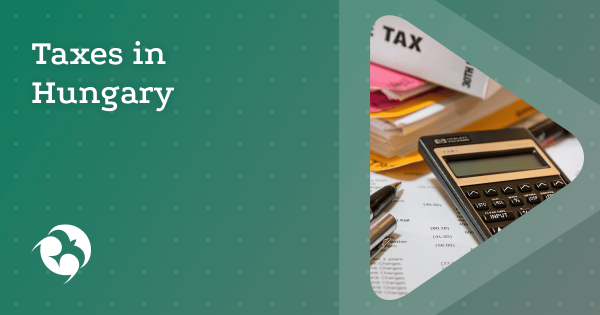The Egyptian Citizenship by Investment program officially launched on March 14, 2020, when the government published the provisions of Law No. 190, adopted by the country’s parliament in 2019. The regulatory legal act amended the existing legislation on citizenship and created the legal framework for granting the Egyptian “Golden Passport” to foreign investors. The program’s base is also complemented by the provisions of the Law on Investments No. 72 of 2017. The legislative act regulates the procedure for creating and participating in business projects in Egypt.
To implement the program, the Egyptian authorities have formed a special unit that oversees the entire process of reviewing applications for citizenship through investment. However, the basic rules of regulation have been developed by the Central Bank of Egypt, which requires all transactions to be conducted in US dollars.
Initially, the terms of the program provided for minimum investments in real estate starting from $500,000. But in March 2023, the requirements were relaxed. The minimum amount of such investments has been reduced to $250,000. This has significantly increased the attractiveness of the program for potential investors. In addition, since June 12, 2023, applicants have been able to invest in any real estate in the country (with the exception of the Sinai Peninsula).
Advantages of Egyptian citizenship
- Access to 82 visa-free destinations;
- The right to an E-2 visa in the USA. A unique option for Egyptians. Investments of $100,000 or more allow you to conduct business and live in
- States (which is not available to citizens of most countries);
- Tax benefits in 9 free zones. Companies are exempt from income tax, import duties and VAT when exporting products;
- Preservation of the first citizenship. Egypt allows dual residency without necessarily renouncing the original passport;
- Fast registration (in 6-12 months);
- Return on investment in 3-5 years;
- Access to the markets of Africa and the Middle East through Egypt’s membership in the African Free Trade Area (AfCFTA) and the WTO;
- Free medical care and education for passport holders.
Investment options for obtaining citizenship
The Egyptian program offers 4 main passport paths, each with unique conditions and financial thresholds. The choice depends on the investor’s goals: saving capital, generating income, or long-term business prospects.
Irrevocable contribution to the account of the program department
The minimum amount is $250,000. Funds are transferred once or in installments throughout the year to a special account of the Central Bank of Egypt. This option is suitable for those who value the speed of obtaining a “Golden Passport”. Registration takes 6-8 months. According to the IMF, 22% of program participants choose this option due to the lack of need to manage assets.
Purchase of real estate
The entry threshold is $300,000. The facilities must be part of government projects (excluding resorts in Sinai). Investors get the right to rent or sell their homes after 5 years without losing their status. In 2024, the average yield on Cairo commercial real estate was 9.2% per annum (3.7% higher than in Dubai).
Investing in a business project
The required minimum is $350,000 + $100,000 irrevocable contribution to the development fund. The project should create at least 5 jobs for Egyptians and operate for at least 5 years. Priority sectors: renewable energy, logistics and pharmaceuticals.
Interest-free deposit in an Egyptian bank
The amount is $500,000 for 3 years or $750,000 for 5 years. The refund is made in the local currency at the exchange rate at the time of closing the account. According to the Central Bank of Egypt, in 2024, deposit investors lost 12-15% due to the devaluation of the pound, which makes this option the least popular (7% of the total number of applications).
Real estate is more profitable for family investors. The inclusion of a spouse and 2 children increases total expenses by only $1,520 in state fees. The business option requires a deep trustworthiness check. 43% of applications are rejected because the projects do not meet the employment criteria. The deposit scheme is relevant for reinvestment plans in the local economy: passport holders receive priority access to public procurement.
Minimum investment volume and preservation conditions
The Egyptian Citizenship by Investment Program sets clear financial and time limits for each investment option. Compliance with these conditions guarantees the legitimacy of the status even after the return of capital.
Basic requirements:
- Realty. The minimum amount is $300,000. The property cannot be sold for 5 years, but it is allowed to lease. In case of early sale before the expiration of the blocking period, the citizenship is revoked. At the same time, the investor also pays a fine of 15% of the transaction value.
- Bank deposit. $500,000 for 3 years or $750,000 for 5 years. Early withdrawal of funds entails loss of passport and confiscation of 20% of the deposit. The refund is made in Egyptian pounds at the exchange rate at the time of closing the account.
- Business projects. $350,000 + $100,000 non-refundable fee. The company must operate for at least 5 years and provide employment for at least 5 local residents. The early liquidation of the enterprise requires switching to a subsidized option with an additional payment of $150,000.
- Irrevocable contribution. $250,000. The only option without obligations to preserve the asset. Citizenship remains indefinitely after a one-time payment.
Additional expenses and taxes
The financial burden of obtaining an Egyptian “Golden Passport” is not limited to the main contribution. Tax obligations and costs vary depending on the chosen investment instrument. The program assumes the following state duties:
- The administrative fee for reviewing the application is $10,000;
- Passport fees. $460 for the main applicant, $360 for persons over the age of 16, $160 for children under the age of 16.
- Due Diligence. $2,000 for an initial security check, $1,500 for a repeat one.
Taxes on the purchase of real estate:
- Registration fee up to $100 (depending on the area of the object);
- The tax on the transfer of ownership is 3% of the transaction value (paid by the buyer);
- For apartments with an area of less than 100 m2, the fixed fee is $180, over 100 m2 – about $ 360.
Annual tax obligations involve the payment of a property tax (10% of the notional rental value). Penalties for late payments amount to 2% + the Central Bank of Egypt’s debt rate.
Tax consequences of obtaining citizenship
The acquisition of an Egyptian passport changes the tax status of an investor. However, fiscal residency is not automatically assigned. This requires a stay in the country of more than 183 days for 12 months. Citizens who do not meet this requirement pay taxes only on income of Egyptian origin.
Persons recognized as tax residents are required to declare all sources of income (including foreign assets and business activity). The progressive scale varies from 0% to 27.5%:
- Income up to 40,000 EGP (≈1,250 $) – 0%;
- Over 1,200,000 EGP (≈37,500 $) – 27,5%.
Requirements for the applicant and family members
The Egyptian Citizenship by Investment program imposes strict requirements on the main investor and his family. The conditions are regulated by Law No. 190 of 2019 and amendments of 2023. Basic requirements for the applicant:
- The minimum threshold is 21 years (for business investments) and 18 years (for real estate and deposits);
- Mandatory provision of a medical certificate confirming the absence of dangerous infectious diseases (AIDS, tuberculosis, hepatitis B/C);
- Certificate of absence of criminal record from the country of citizenship and states of permanent residence for the last 10 years;
- Confirmation of the legality of the origin of funds (bank statements, tax returns, asset purchase and sale agreements).
It is allowed to add a spouse to the application (up to 4 official wives for men in accordance with Sharia law), as well as unmarried/unmarried children under the age of 21. The spouses receive a passport 24 months after the main applicant. Children born after the approval of the application automatically acquire citizenship upon submission of documents within 6 months.
Dual citizenship
Formally, the Egyptian authorities allow obtaining a second passport, but in practice applicants face certain bureaucratic problems. According to article 10 of Law No. 26 of 1975, citizens are required to obtain prior approval from the Ministry of Internal Affairs in order to purchase a foreign passport. Without such a permit, Egyptian citizenship is automatically revoked.
Applicants who have obtained a second citizenship must submit a request to retain their Egyptian passport within 12 months. At the same time, in 78% of cases with the investment option, approval is granted automatically (provided there are no criminal prosecutions). Spouses and minor children are included in the application without additional checks.
The procedure for obtaining citizenship
Obtaining an Egyptian passport through investments requires a sequential passage of 6 stages.
- Preparation of documents. The applicant must provide a certificate of absence of criminal record, medical report, confirmation of the source of funds and other certified personal documents.
- Submission of the application and payment of fees. The main applicant deposits $10,000 to pay the state fee through the Central Bank of Egypt payment system. The receipt is attached to the package of documents, which is submitted to the Department of Investment Programs.
- Due Diligence. The security check lasts 3-6 months. The cost is $2,000 for the main applicant, $1,500 for the spouse, and $1,000 for children aged 16-21.
- Making investments. After prior approval, the investor transfers funds or completes a real estate transaction within a year.
- Registration of a temporary residence permit. For the period of investment verification, a resident permit is issued for a period of 6 months. To receive it, a real estate purchase and sale agreement or a bank statement of deposit is provided.
- Obtaining a passport. After confirming the investment, the applicant receives a certificate of citizenship. A biometric passport is produced in 2-3 weeks at the Egyptian Interior Ministry.

- We will answer all your questions
- We will help you choose the best option
- We will guide you through every step or do everything for you
Application processing time
The process of obtaining an Egyptian passport through investments takes 6-9 months, provided that the documents are processed correctly. There are 3 factors that affect the speed: the Due Diligence stage (verification of trustworthiness through Interpol and the Egyptian special services), the speed of funds transfer (installments are allowed – 50% immediately and 50% during the year are allowed) and the workload of government agencies.
The deadlines are not extended for family investors. The inclusion of a spouse and 2 children adds only 10-14 days to obtain additional passports. However, the spouse will receive the document 24 months after the main applicant, if he does not invest on his own.
Required documents
To participate in the program, you must provide the following personal documentation:
- Completed application form;
- A copy of the applicant’s valid passport and birth certificate;
- 4 passport-sized photographs;
- Receipt of payment of the state fee in the amount of $10,000;
- Certificate of absence of criminal record from the country of residence;
- Medical report on the state of health;
- Documents confirming marital status (marriage certificate, if any);
- Copies of passports and birth certificates of the spouse and children under the age of 21;
- Documents confirming the financial situation and the source of funds;
- Confirmation of investments made according to the selected option;
- Extracts from property registers (if there is property in Egypt).
Failure and return on investment
Obtaining Egyptian citizenship through investment carries risks of rejection. According to the Egyptian Interior Ministry for 2024, in 15-20% of cases, the applicant is not approved. The main reasons for rejecting applications are related to violations of the procedure or non-compliance with investment criteria. The most common reasons for rejection are:
- False documents (forged income statements, certificates of absence of criminal record, asset purchase and sale agreements);
- Problems with trustworthiness (existence of valid sanctions, connection with terrorist organizations or criminal prosecution in any country);
- Violation of investment conditions (attempt to use borrowed funds, early sale of real estate, or insufficient job creation in business projects).
In case of refusal, the applicant receives an official notification stating the reasons. 60 days are allocated from the date of receipt of the document to appeal the decision. The appeal is filed through the Appeals Committee at the Office of the Prime Minister of Egypt with the involvement of a licensed lawyer. A second appeal is allowed 12 months after the refusal.
The possibility of a refund depends on the selected option.:
- The irrevocable fee is non-refundable under any circumstances.
- The sale of real estate is allowed after 5 years without loss of citizenship.
- The deposit is refunded after 3-5 years in Egyptian pounds at the exchange rate at the time of account closure. In case of early withdrawal, 20% of the amount is retained.
In the case of a business project, a partial refund is possible after 5 years while maintaining a 40% stake in the company and at least 5 jobs.
Recent changes in the program
In 2024-2025, the Egyptian authorities made key adjustments aimed at increasing transparency and attractiveness of conditions. The following major changes were introduced in October 2024:
- Collective investments in one object have become allowed, provided that the share of each participant exceeds $300,000. For example, a villa for $ 1.5 million can be the basis for 5 applications.
- New banking rules for private transactions have been adopted. The purchase of properties from private developers now requires opening a personal account in an Egyptian bank. Investors are required to transfer the full amount to this account before converting to pounds and paying the seller. Direct international transfers are still possible for government projects.
- The minimum contribution to the company has been reduced from $400,000 to $350,000, but a mandatory non-refundable contribution of $100,000 has been added. The requirement to own 40% of shares has been removed, which has expanded opportunities for investments in startups and small businesses.
The updated rules allow us to maintain a balance between flexibility for investors and protection of Egypt’s economic interests. It is important to note that the program remains one of the most affordable options for second citizenship in the Middle East region.












